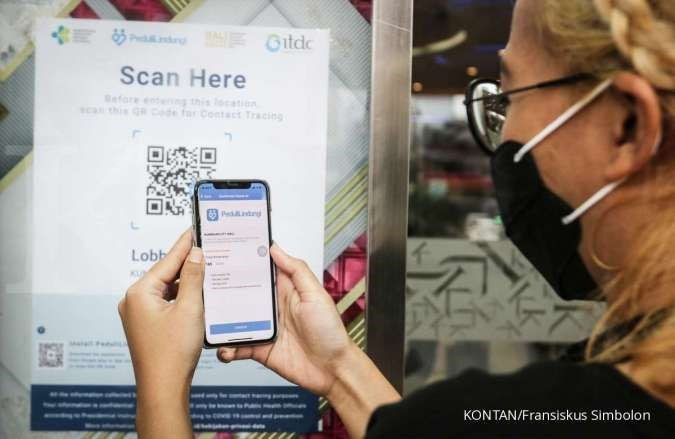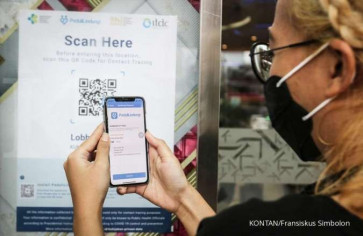Popular Reads
Top Results
Can't find what you're looking for?
View all search resultsPopular Reads
Top Results
Can't find what you're looking for?
View all search resultsHow we can do better: PeduliLindungi should be doing more
"How We Can Do Better" is a new column that takes a close look at various innovations and developments across different industries and the ways they could be improved. In our inaugural installment, we delve into the official COVID-19 tracking app, PeduliLindungi.
Change text size
Gift Premium Articles
to Anyone
"How We Can Do Better" is a new column that takes a close look at various innovations and developments across different industries and the ways they could be improved. In our inaugural installment, we delve into the official COVID-19 tracking app, PeduliLindungi.
PeduliLindungi, the official COVID-19 contact tracing application that was designed by the government to trace the close contacts of suspected cases and to identify vaccinated individuals, features a menu that scans QR codes upon entering public spaces such as shopping malls and office buildings. It also provides the user’s vaccine certificates and COVID-19 test results, which are required for traveling between cities and countries.
Many users expected this to mean that the application would provide a layer of security and accurate information. This has not been the case. Almost two years since its launch, the application remains clunky in delivering what should be its most obvious feature: updated notifications on the location of impacted areas and alerts after a close contact with a suspected COVID-19 case. In other words, PeduliLindungi has problems letting users know if they were in the same area as someone who turned out to have the virus.
On its official website, the app does state that "users will be asked to create an account and participate in contact tracing”, but it does not seem to have been executed with precision and consistency.
For Lina Meliawati, a 41-year-old housewife from Malang, such features could have prevented her from contracting the virus. She recently got infected by COVID-19 for a second time during the celebration of Chinese New Year.
“I think it is very important that the application notifies us if we have been in close contact. I was lucky that my family member told me directly when he got the virus. My in-law is already 83 years old and has asthma. I would not have gone to Surabaya had I known that the city had been impacted by a surge,” she said.
“I tested positive a few days after I took the rapid test. I was informed about this on Feb. 5, but it only appeared on the application on Feb. 7. I don’t know whose fault that was,” she continued.



















